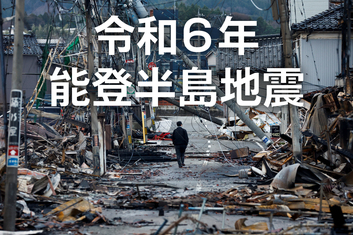Similar anxieties over defence
Whilst the Mutual Security Treaty relationship is evidently strong at present, and the recent pledge by the Obama administration to put East Asia at the heart of US foreign policy has been strongly welcomed in the region, there is an unexpressed fear in Tokyo that at some stage in the future the US could resort to isolationist policies that will leave Japan more reliant on its own resources.
These fears of potential abandonment have underlain recent Japanese moves to reach out to new partners.
Whatever the focus on regional security, Japan cannot ignore wider international security issues. The switch to greater dependence on fossil fuel supplies following the safety related shutdowns of nuclear power plants following the Fukushima disaster has increased Japan’s dependence on external supplies by sea, whether from the Middle East, or from elsewhere.
By default Japan finds itself obliged to take positions on issues such as Iran’s potential development of nuclear weapons, joining international sanctions, which then makes it a more substantial player on the international scene. Furthermore, Japan still retains ambitions for a permanent seat on the United Nations Security Council, and it is tacitly recognised that permanent members need to contribute actively to the promotion of international stability.
On the face of it, the security challenges facing the UK are much less overt than for Japan. After forty years of the Cold War, when the threat of potential invasion and nuclear war was at the top of the agenda, the potential for direct conflict in the UK itself has receded. The focus in recent years has been on contributing to the restoration of stability in areas of conflict, such as in the Balkans or West Africa, or to addressing the potential sources of global terrorism in the Middle East and Afghanistan.
The UK retains a historical legacy of responsibility for defence of distant overseas territories, such as the Falkland Islands and parts of the Caribbean, and including islands in the Indian Ocean and the Pacific. It has also long been conscious of its dependence, like Japan, on resource supply from overseas. Maintenance of the maritime and air capabilities needed to defend these remains a priority.
Still embroiled in operations in Afghanistan, there is a political commitment to withdraw by the end of 2014. Despite more recent involvement in Libya, and ongoing instability in the Middle East in both Syria and Israel/Palestine, not to mention Iran, the likelihood is that the UK will be reluctant to commit to substantial new land operations away from home, and will instead revert to a more traditional maritime based policy of seeking to project influence from the sea and be prepared to protect maritime supply routes, as required.
As China’s rise continues, this could include greater emphasis on the Five Powers Defence Arrangement, involving the UK with Malaysia, Singapore, Australia and New Zealand, which currently includes UK forces in annual exercises near the Malay peninsula.
The UK also has a residual commitment to stability on the Korean peninsula, as a member of the Armistice Commission, and this includes membership of the UN Command both in Korea and in Japan.
In recent years, UK and Japanese forces have worked together on a number of occasions. The UK was one of the first partner nations to join Japan in refuelling operations in the Indian Ocean, in the wake of the terrorist attacks of September 2001, and the UK cooperated closely with Ground Self Defence Forces in Iraq from 2004 to 2006, which operated in the UK controlled Multinational Division (South East).
For a brief period in 2005, UK forces directly provided security in the GSDF area, before being relieved by Australian forces. More recently, the two countries have also worked closely together in anti-piracy operations off the coast of Somalia and in the Gulf of Aden.

















